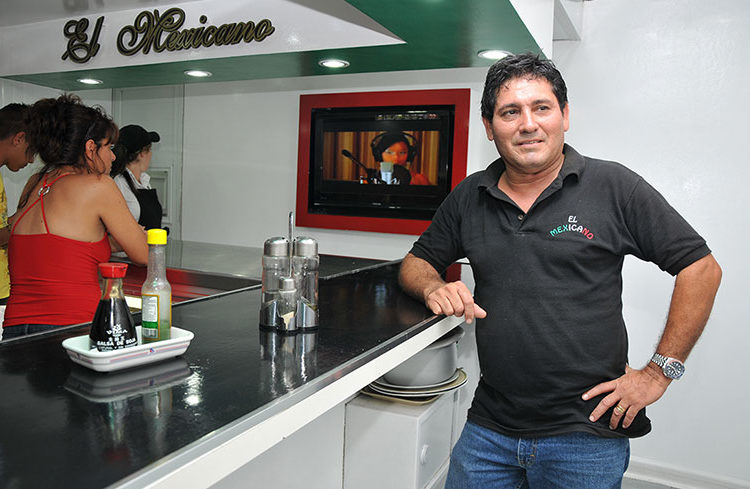Jorge Luis Perez is the owner of one of the most popular cafes in Havana. It is located in a remote spot in Guanabacoa municipality but very close to road coming from the eastern beaches, so many people make a stop at “El Mexicano” to eat, especially his famous sandwiches.
For many years, Jorge was devoted to the breeding of goats and sheep but in the 1990s he decided to open a cafe at home. He took the chance of the first and very tentative opening of self-employment that occurred in response to the worst economic crisis in the history of the Cuban Revolution.
His business boomed, partly because the limitations present then discouraged most entrepreneurs. Restaurants, for example, could only have 12 chairs, while at cafés customers were forbidden to sit.
The few businesses that managed to stay afloat concentrated clientele throughout the city. It was a golden age because thanks to the Cuban government they had no compettion, state cafeterias were underserved and most of the private entepreneurs were denied the necessary licenses to open a business.
The government put barriers to prevent the birth of a class of wealthy merchants but paradoxically these same obstacles were those that allowed the survivors to make lots of money. Some of them spent holidays every year in Europe with the whole family.
Jorge Luis also travelled; the first country was Mexico from where he imported furniture and equipment to improve his cafeteria. He also did so for pleasure to France, Spain or Egypt, “I would never have imagined that one day I could see those places,” he said at his home, located just behind the cafe.
The secret of good benefits of ¨The Mexican¨ cafeteria are varied offer, customer service, comfort and cleanliness of the premises, while in the State cafes few things are sold, customer mistreatment is daily bread, and in many of them, dirt rules.
As Jorge Luis runs out to buy bread, cold cuts and soda when he has few left, managers of state cafeterias have to wait for “somebody to supply them” and that can take several days, leaving them so short of supplies they only sell cigarettes and rum.
Also there is the influence of the wages of state workers, including management, that are insufficient to live. So they supplement their income by reducing the amount of ham or cheese for each sandwich then resell the surplus in the black market.
“Believe me, we live in similar situations, even paying higher wages than the government,” says the owner of The Mexican, but pauses and adds, smiling that they are better controlled because “the master’s eye fattens the horse.”
For the State, it is almost impossible to have an eye on the thousands of cafes and restaurants that exist throughout the island. And the truth is that the vast majority of workers steal food, many managers are corrupt and most of inspectors are bribed.
Jorge invites us to eat, there are national and foreign groups’ videos on TV, the premises are cooled with several fans hanging from walls and all who serve us are going with impeccable uniform. Hopefully someday, with the move to cooperatives of the industry, that’s the reality we will find in any cafe in Cuba.











